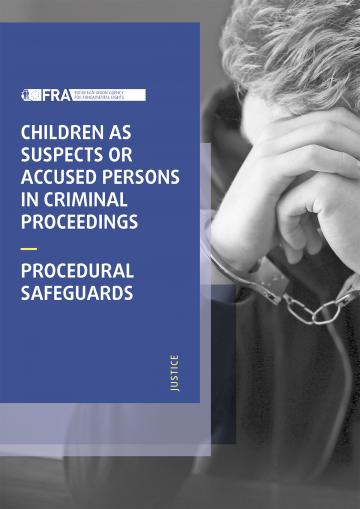Sprache
English

This report draws on practitioners’ and children’s experiences of how the directive is applied in practice. In so doing, the findings presented support authorities and policymakers in gaining a better understanding of the fundamental rights challenges encountered and potential remedies to address these. The report also highlights good practices that countries could follow to uphold children’s rights.
In this report: